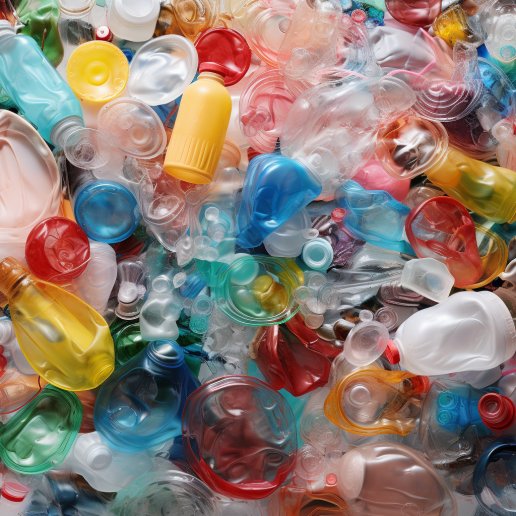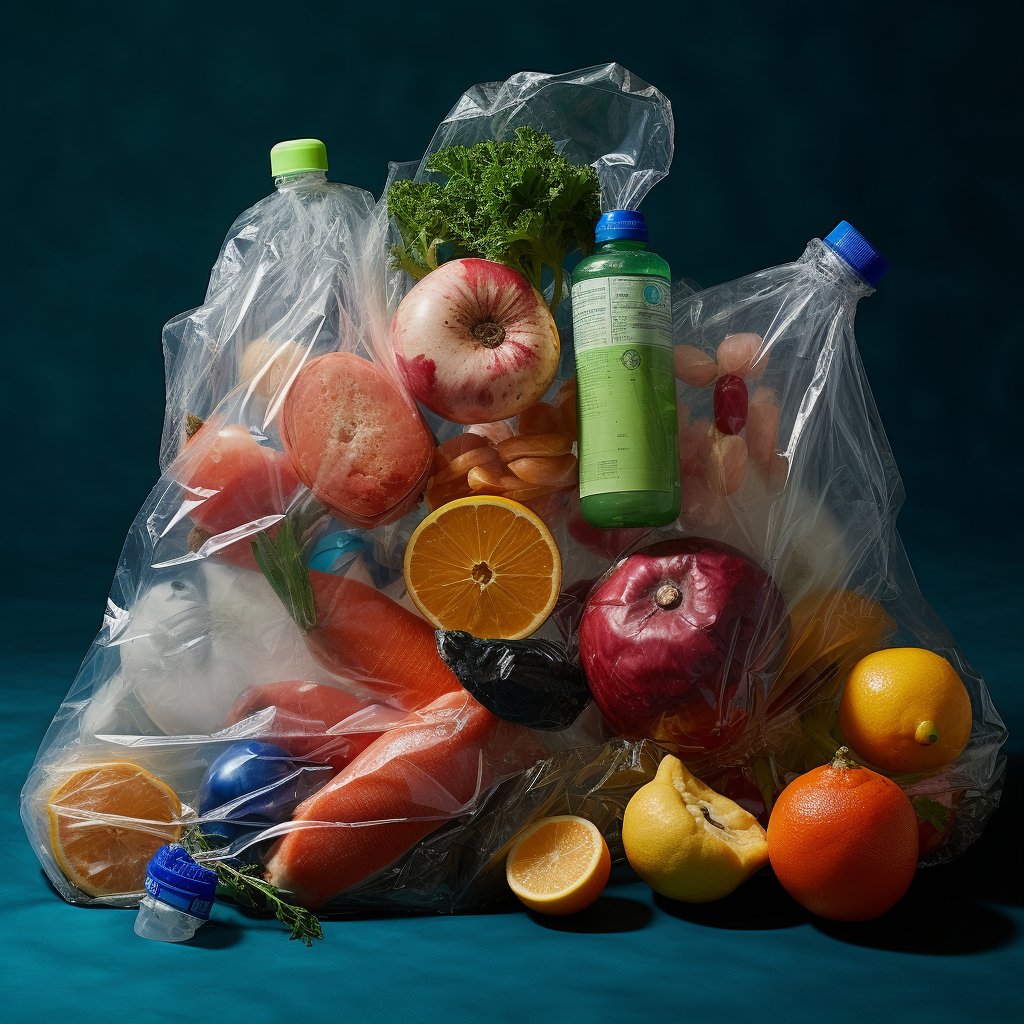The European Union (EU) has set ambitious targets to reduce waste generation and promote a circular economy by increasing the use of recycled materials in new products. This has led to regulations that mandate minimum levels of recycled content in certain materials.
As the world grapples with the mounting environmental challenges posed by climate change, pollution, and waste, the European Union (EU) has promoted sustainable development through its regulations for recycled content in new materials. These regulations, which set minimum requirements for the use of recycled materials in manufacturing processes, have far-reaching implications for the plastics and recycling industries and businesses and consumers worldwide. EU Regulations for Recycled Content in New Materials:
The EU has introduced various regulations to promote using recycled materials in new products. The most notable of these are:
- The Waste Framework Directive (2008/98/EC): This directive aims to promote sustainable waste management and the use of recycled materials. It sets out minimum requirements for reusing and recycling waste materials, including a target of 55% recycling of municipal waste by 2025.
- The Packaging and Packaging Waste Directive (94/62/EC): This directive requires that 25% recycled content be used in plastic packaging by 2025. It also requires the separate collection and recycling of packaging waste.
- The Single-Use Plastics Directive (2019/904): This directive aims to reduce marine litter by banning single-use plastic products and mandating the use of recycled content in plastic bottles.

Industrial Usage and Application Areas:
In the construction industry, recycled concrete is being used for new building projects. In the automotive industry, recycled plastics are being used to create new car parts. Using recycled materials is also becoming common in consumer products such as clothing and furniture.
Consumer Product Examples:
The use of recycled materials in consumer products is becoming more widespread. For example, Adidas has created a range of shoes made from recycled plastic bottles, and Patagonia has created a range of clothing made from recycled materials. These products have become increasingly popular with consumers who are looking for more sustainable options.
Material Properties:
The properties of recycled materials can differ from those of virgin materials. Recycled materials may have lower strength, durability, and quality. However, these properties can be improved through the use of additives and processing techniques. Recycled materials can also have lower environmental impacts than virgin materials, as they require less energy and resources to produce.
Future Trends in Recycling:
The use of recycled materials is expected to continue to increase. This is driven by increasing consumer demand for sustainable products and government regulations promoting the use of recycled materials. The development of new technologies and processes is also expected to improve the quality and properties of recycled materials.
Environmental Impact:
The regulations positively impact the environment by reducing the amount of waste generated and reducing the carbon footprint of new products. By mandating the use of recycled materials, the EU promotes a circular economy and reduces the need for virgin materials. This reduces the environmental impact associated with extracting, processing, and transporting virgin materials.
The use of recycled materials also reduces greenhouse gas emissions associated with the production of new materials. For example, the production of recycled aluminium requires 95% less energy than the production of virgin aluminium. Similarly, producing recycled paper requires 60% less energy and results in 74% fewer air pollutants.
Economic Impact:
The regulations significantly impact the economy by creating new business opportunities and increasing job opportunities in the recycling industry. The recycling industry in the EU employs over 3 million people and generates an annual turnover of over €24 billion.
Using recycled materials also has economic benefits for businesses that use them. Recycled materials are often cheaper than virgin materials, and using recycled materials can reduce a company’s exposure to commodity price fluctuations.
However, the regulations also pose some challenges for businesses that need to comply with them. The cost of sourcing and processing recycled materials can be higher than that of virgin materials, and supply chain challenges may be associated with sourcing recycled materials.
Overall, the EU regulations for recycled content in new materials significantly impact the environment and the economy. While they pose challenges for businesses, they also create new opportunities for the recycling industry and promote a more sustainable and circular economy.
Environmental and Economic impact
In addition to the impact on the environment and the economy, the EU regulations for recycled content in new materials also have significant implications for the recycling industry. These regulations have played a crucial role in promoting the development of a more sustainable and circular economy by increasing the demand for recycled materials.
The regulations have created a stable and predictable market for recycled materials, encouraging investment in recycling infrastructure and technology. This has led to developing of more efficient and cost-effective recycling processes, making it easier to meet the increasing demand for recycled materials.
Furthermore, the regulations have also led to new recycling programs and initiatives. For example, the EU’s Circular Economy Action Plan includes a target to increase the collection and recycling of plastic waste to 50% by 2025. This target has led to developing new recycling programs and initiatives across the EU, such as deposit schemes and extended producer responsibility programs.
The regulations have also played a significant role in promoting international cooperation on recycling. The EU is working with other countries and international organisations to promote the development of a global recycling industry. This includes initiatives to improve waste management infrastructure and promote using recycled materials in new products.
Overall, the EU regulations for recycled content in new materials are driving the development of a more sustainable and circular economy. They are creating new business opportunities and jobs in the recycling industry, promoting the development of more efficient recycling processes, and encouraging international cooperation on recycling.
Regulations
EU regulations for recycled content in new materials significantly impact the manufacturing process, the advantages and disadvantages of using recycled materials, and the global and environmental impact.
Environmental Impact:
Using recycled materials has significant environmental benefits. It reduces waste and greenhouse gas emissions associated with extracting and processing virgin materials. It also conserves natural resources and reduces energy consumption.
Global Impact:
The EU regulations for recycled content in new materials have global implications, as the EU is a major consumer of products and materials worldwide. The regulations are driving the development of a global recycling industry and promoting international cooperation on recycling. They are also encouraging other countries to adopt similar regulations, which will significantly impact the demand for recycled materials globally.
EU regulations for recycled content:
The EU regulations for recycled content in new materials have significant implications for the plastics and recycling industries and businesses and consumers worldwide. These regulations are helping to promote sustainable development, create a circular economy, and reduce the environmental impact of manufacturing processes. While there are challenges to using recycled materials, the advantages far outweigh the disadvantages, and the future trends in recycling look promising. As we continue to navigate the complex issues of sustainability and environmental policy, we must recognise the role recycled materials can play in building a more sustainable and resilient world.
The EU regulations for recycled content in new materials are driving the use of recycled materials in various industries. The use of recycled materials is becoming more common in consumer products, and the properties of recycled materials are being improved through additives and processing techniques. The future of recycling looks bright, with increasing demand for sustainable products and the development of new technologies and processes.






